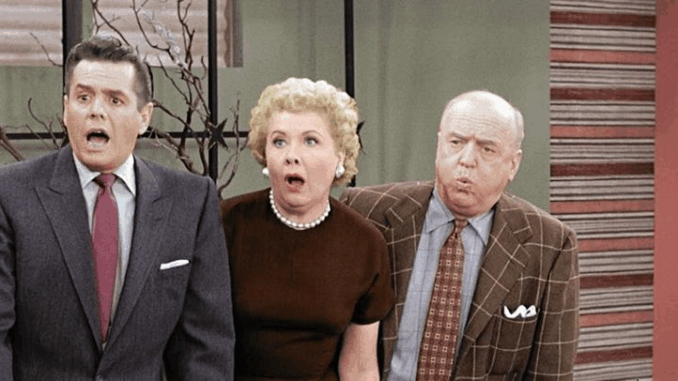
The third and final season of I Love Lucy, airing from 1953 to 1954, marked an important turning point for the beloved series. With new developments in the lives of Lucy and Ricky Ricardo, especially the arrival of their baby, this season balanced the classic humor fans adored with deeper themes of family growth and change. Season 3 successfully blended comedy with heartfelt moments, wrapping up the original run of the show on a high note.
A New Chapter for Lucy and Ricky
Season 3 picks up after the birth of Lucy and Ricky’s daughter, Little Ricky, introducing the couple’s transition into parenthood. This new family dynamic brought fresh challenges and comedic situations, as Lucy navigates motherhood while continuing her trademark misadventures.
The show explored the balancing act between personal ambitions and family responsibilities, highlighting Lucy’s attempts to keep her lively spirit alive amid her new role as a mother. Ricky’s supportive but sometimes bewildered responses added warmth and humor to these episodes.
Themes and Humor in Season 3
Season 3 maintained the show’s signature comedic style while incorporating new themes centered around family and personal growth. The humor continued to rely on Lucy’s physical comedy and wild schemes, but the stakes felt more personal with the introduction of parenthood.
Episodes often showcased Lucy’s efforts to return to performing, manage household chaos, or deal with parenting mishaps. The series also addressed the evolving relationships between Lucy, Ricky, Ethel, and Fred, showing their continued friendship and support through life’s ups and downs.
Notable Episodes from Season 3
Season 3 delivered some memorable episodes that blended laughter with touching family moments:
- “Lucy’s Last Birthday”: A comedic and sentimental episode where Lucy’s friends plan a surprise party for her.
- “The Ricardos Visit Havana”: Highlighting Ricky’s Cuban heritage, this episode offers cultural insight combined with the show’s trademark humor.
- “Little Ricky Gets Glasses”: This episode sensitively addresses parenting challenges while keeping the tone light and funny.
- “Lucy and Ethel Buy the Same Dress”: A classic comedy of errors that showcases the enduring friendship between Lucy and Ethel.
Character Growth and Relationships
Season 3 deepened the characters’ personal arcs, especially highlighting Lucy’s evolution from a carefree housewife to a devoted mother trying to juggle multiple roles. Ricky remained a steady presence, balancing his career with family life.
The friendship between Lucy and Ethel continued to be a comedic highlight, demonstrating loyalty and camaraderie. Fred and Ethel’s subplots added warmth and humor, enriching the group dynamic.
The End of an Era and the Legacy
Season 3 marked the end of the original I Love Lucy series, concluding a run that forever changed television comedy. The season’s blend of humor, heart, and family themes resonated with audiences, cementing the show’s legacy.
The show’s pioneering use of multi-camera filming before a live audience remained influential, and Lucille Ball’s comic genius shone through every episode. Season 3’s exploration of parenthood and family life added a new dimension to the series, making it more relatable and enduring.
Conclusion
Season 3 of I Love Lucy successfully brought fresh challenges and heartfelt moments to the beloved series. With the arrival of Little Ricky and the evolving dynamics of friendship and family, the season balanced comedy with warmth and depth. As the final season of the original show, it celebrated the timeless humor and charm that made I Love Lucy a television classic still cherished today.
